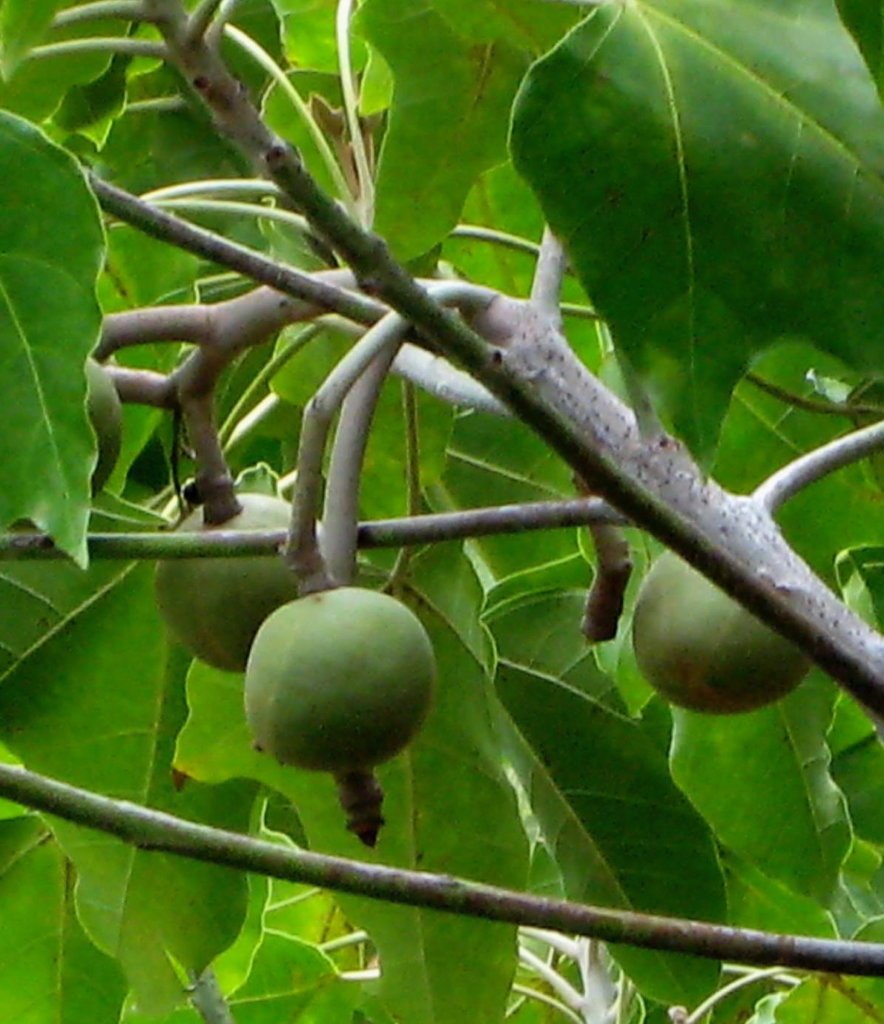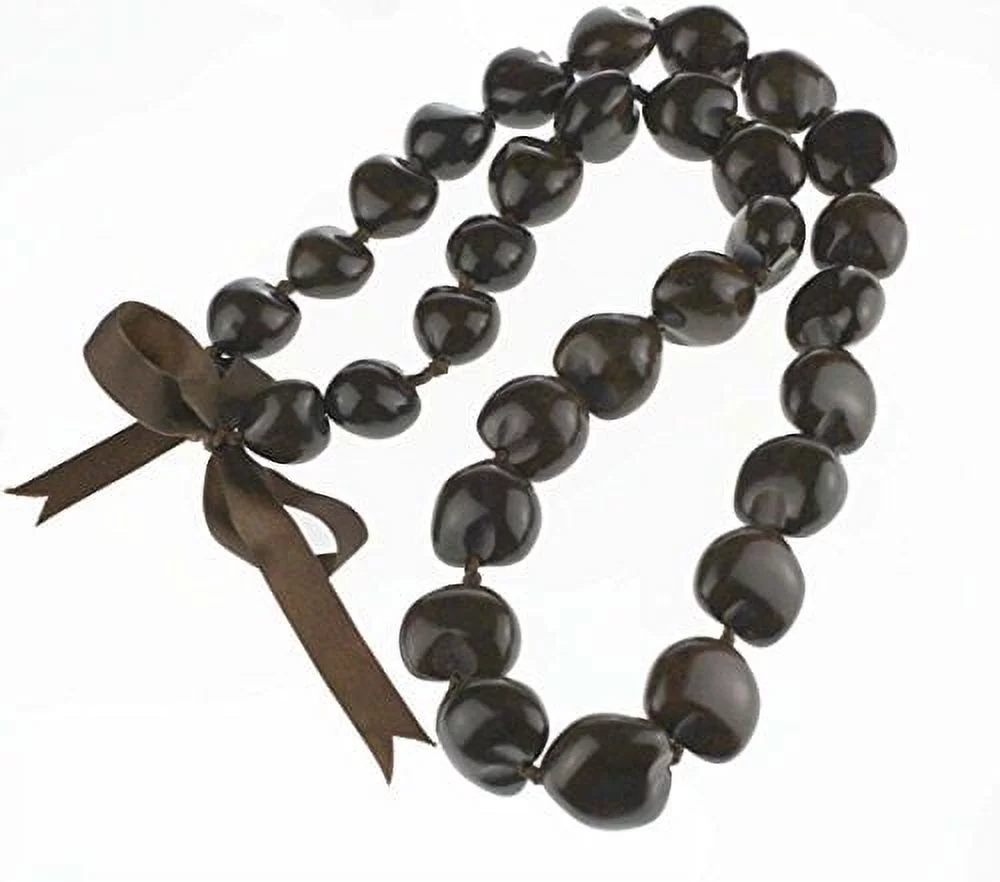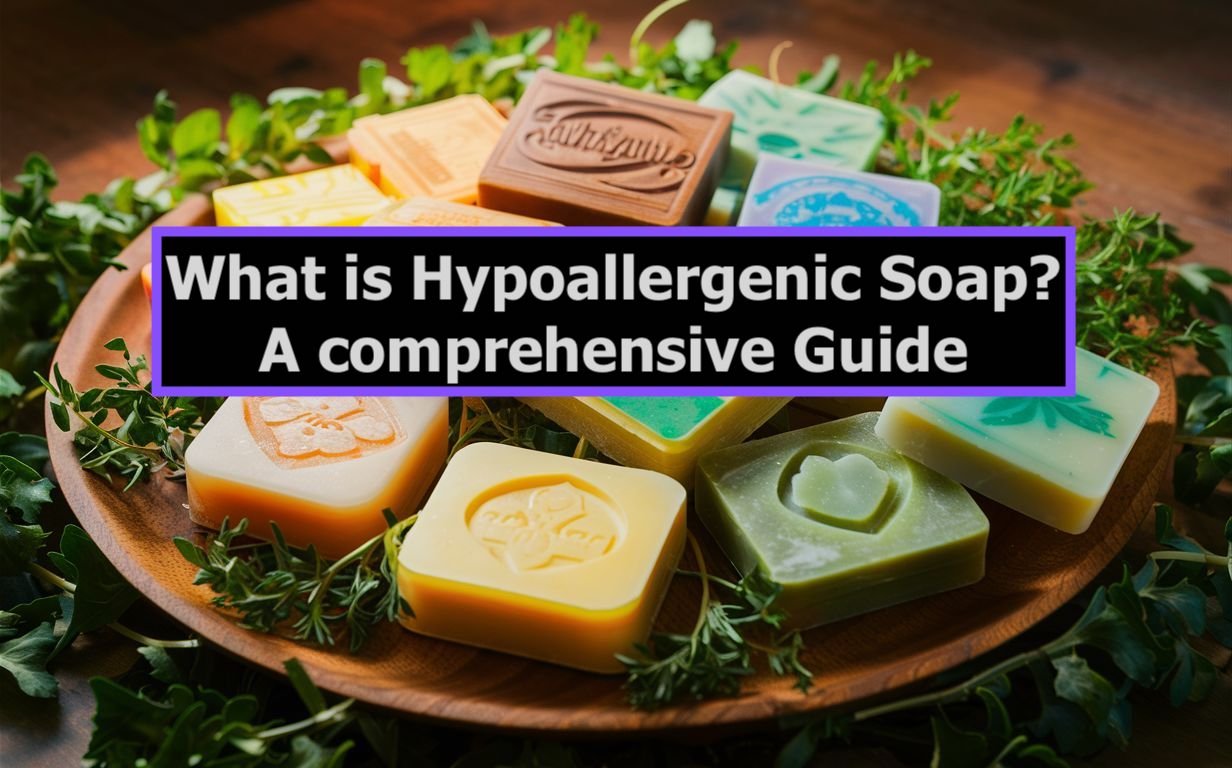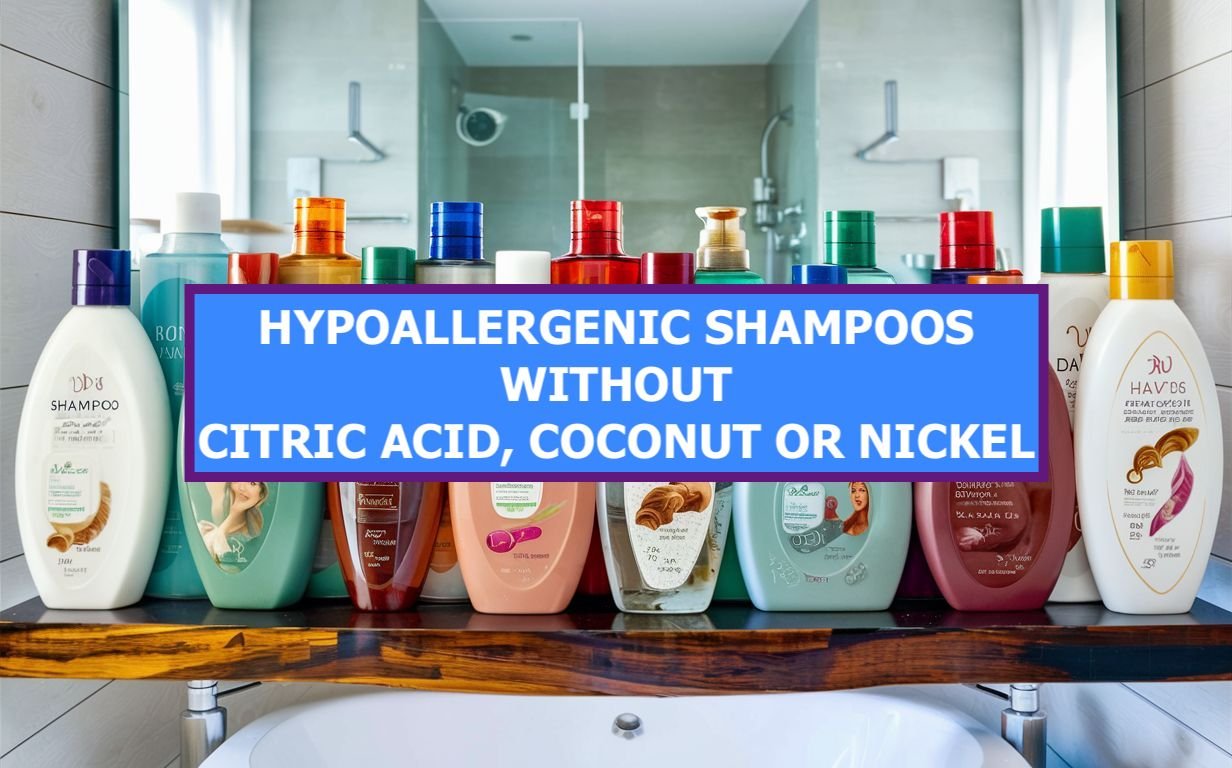Have you ever encountered the term “kukui nut allergy” and wondered what’s behind this exotic name? Well, you’re about to embark on an interesting journey that takes us to the heart of Hawaiian tradition and modern-day skincare and cuisine.
To some, kukui nuts and kukui nut oil offer tremendous benefits, but to others, they cause discomfort and allergic reactions. Let’s unpack the story of the kukui nut, its uses, and how to navigate the waters if you’re allergic.
What are Kukui Nuts?
Kukui nuts are the little powerhouses behind many Hawaiian traditions and more. These aren’t your average nuts; they carry a legacy of illumination, both in the physical and spiritual realms, in the beautiful islands of Hawaii.

Historically, Hawaiians used it as a natural light source, and the oil extracted from kukui nuts lit up the nights before electricity was a thing. But it’s not just about lighting up dark corners.
These nuts symbolize protection, peace, and guidance, holding a revered spot in the hearts of the locals.
Fast-forward to today and kukui nuts have found their way into kitchens and cosmetic bags worldwide.
From savory dishes that nod to traditional Hawaiian cuisine to lotions and hair products that promise the secret to islanders’ glowing skin, kukui nuts are quite versatile stars.
Kukui Nuts Allergy Symptoms
As amazing as kukui nuts are, they come with a disclaimer for some people – allergies. Just like any other nut, kukui nuts can trigger allergic reactions in certain individuals, making it important to recognize the signs and know what to do next.
Signs You Might Be Allergic:
- A bite of a dish containing kukui nut oil leaves you itching or breaking out in hives.
- Using a lotion with kukui nut as an ingredient irritates your skin.
- Breathing difficulties, swelling around the mouth or throat, or a severe allergic reaction known as anaphylaxis after consuming or coming into contact with kukui nut products.
If any of these symptoms sound familiar, let’s talk with your doctor. Allergies are no fun, but knowing what you’re dealing with is the first step towards managing them.
Uses And Benefits of Kukui Nut and Kukui Nut Oil
Navigating life with a kukui nut allergy might seem daunting at first, especially given its popularity in various products. However, with a little vigilance and some savvy substitutions, you can easily avoid potential allergens while still enjoying the benefits of kukui nut products.
Knowing what allergen triggers your reaction is the first step to managing any allergy. However, knowing the other uses or benefits of the triggering agent, in this case, kukui nuts and kukui nut oil, will take you one step forward to knowing where to expect the allergen.
Hair Care Benefits
- Nourishes the Scalp: Kukui nut oil can be massaged into the scalp to moisturize and soothe dryness or flakiness, promoting healthier hair growth.
- Adds Shine and Softness: Applying kukui nut oil to the hair can tame frizz, add a healthy shine, and leave hair feeling softer and more manageable.
- Strengthens Hair: The essential fatty acids in kukui nut oil can help strengthen hair strands, reduce breakage, and improve overall hair health.
Health Benefits
- Potential Anti-inflammatory Effects: While most celebrated for topical use, the anti-inflammatory properties of kukui nut oil may also offer internal health benefits, such as reducing inflammation when included in a balanced diet. However, consumption should be cautiously approached, especially for those with nut allergies.
- Skin Barrier Protection: Kukui nut oil moisturizes and protects against environmental pollutants and irritants that can harm skin health by forming a protective barrier on the skin.
Culinary Uses
- Flavorful Oil for Cooking: In small quantities, kukui nut oil can add a unique, nutty flavor to dishes. It’s used in traditional Hawaiian cuisine and can be a creative addition to salads and marinades. Note that because of its strong taste and potential allergenic properties, it should be used sparingly and with awareness of any dietary restrictions.

Avoiding Kukui Nut Products – Tips
Finding out you’re allergic to kukui nuts doesn’t mean you have to miss out on the goodness of Hawaiian traditions or the benefits of natural products. It’s all about finding the right balance and alternatives that work for you.
Navigating Your Way:
- Be a label detective: Make reading labels a habit, whether it’s your skincare products or the new health snack you want to try.
- Clear communication: Eating out? Don’t shy away from asking about the ingredients in your meals.
- Finding alternatives: Plenty of other nut oils and ingredients can offer similar benefits without allergic reactions.
The first step in living kukui-free is to become an ingredient-checking pro. Always scan product labels for kukui nut oil, which might also be listed under its scientific name, Aleurites moluccanus.
Reading Product Labels – Spotting Kukui Nut in Products
Navigating the world of product labels can be tricky, especially when dealing with allergies to specific ingredients like kukui nuts.
To stay safe, it’s crucial to familiarize yourself with the different names and terms under which kukui nut and kukui nut oil might be listed on product ingredients. Here’s a guide to help you identify these items on labels and ensure you’re making informed choices.
Kukui Nut Derivatives in Product Ingredients
When scanning ingredient lists, be aware that kukui nut oil can appear under several names:
- Kukui Nut Oil: The most straightforward and commonly used name.
- Aleurites Moluccanus Seed Oil: The scientific name for kukui nut oil, often used in skincare and cosmetic formulations.
- Candlenut Oil: Kukui nuts are also known as candlenuts, especially in culinary contexts. This name might appear in both cooking oils and cosmetic products.
- Tung Oil: Less common, but it’s important to note that kukui nut oil may sometimes be confused with or referred to similarly to tung oil, which is actually from a different plant and used primarily in wood finishing.
Products Likely to Contain Kukui Nut Oil
Kukui nut oil’s hydrating and healing benefits make it a popular choice in a variety of products. Here are some places you might find it:
- Skincare Products: Look for kukui nut oil in moisturizers, serums, body oils, and balms. Its deep moisturizing properties are often sought after for dry skin formulas.
- Hair Care Products: Conditioners, hair oils, and masks may contain kukui nut oil for its ability to nourish the scalp and add shine to the hair.
- Soaps and Bath Products: Its skin-soothing qualities can make kukui nut oil a desirable ingredient in soaps, bath bombs, and other bathing essentials.
- Culinary Uses: In the kitchen, kukui nut oil might be used in specialty cooking oils, though this is less common. Its unique flavor can add a tropical twist to dishes.
Alternatives and Kukui Nut-free Products
Becoming proficient in reading labels is key to avoiding kukui nut oil if you’re allergic. Always take the time to read the entire ingredient list of any new product, keeping an eye out for the names mentioned above.
If in doubt, contacting the manufacturer directly can provide clarity on the ingredients used.
Many other oils offer similar benefits without the allergen concern for those seeking alternatives to kukui nut oil in products. Oils like jojoba, coconut, and sweet almonds (for those without tree nut allergies) can be excellent substitutes in skincare and hair care routines.
Safe and Soothing Alternatives without Kukui Nut Oil
Fortunately, the natural world is full of incredible ingredients that can match or surpass kukui nut oil’s benefits. Whether you’re looking to keep your skin glowing or your dishes flavorful, here are some kukui-free champions:
For Skincare:
- Jojoba Oil: Mimics the skin’s natural oils, making it a great moisturizer without clogging pores. Check it out here on Amazon
- Argan Oil: Rich in vitamin E and fatty acids, it’s perfect for both skin and hair care.
- Shea Butter: Offers deep moisturization and is ideal for sensitive skin.
- For Hair Care:
- Coconut oil deep-conditions hair, adds shine, and supports scalp health (However, Make sure you’re not allergic to coconut oil).
- Sweet Almond Oil: Packed with vitamins, it helps strengthen hair and reduce breakage. Here’s the best sweet almond oil brand for hair
- Olive Oil: A well-known hydrator that can soothe the scalp and enhance the softness of your hair.
- In the Kitchen:
- Avocado Oil: A heart-healthy cooking oil with a high smoke point, perfect for dressings and cooking.
- Grapeseed Oil: Light and versatile, it’s ideal for frying and baking without overpowering dishes.
- Walnut Oil: Offers a rich, nutty flavor, making it a delightful addition to salads and baked goods. (Note: Avoid if you have tree nut allergies)
Embracing the Kukui-Free Journey
Living without kukui nut products doesn’t mean you have to compromise on quality or the enjoyment of your skincare, haircare, or culinary adventures.
With the numerous alternatives available, you can find substitutes that agree with your allergy and enhance your routine in new and exciting ways.
Remember, transitioning to a kukui-free lifestyle is a journey. Along the way, you’ll discover products and ingredients that work wonderfully for your needs, getting you closer to living that allergy-free lifestyle.
Always consult with healthcare professionals or allergists for personalized advice, and embrace the journey with curiosity and openness to new experiences.
Conclusion – Am I allergic to Kukui Nut?
The kukui nut and its oil are treasures of nature, offering a range of benefits for skin, hair, and potentially overall health. Whether incorporated into your skincare routine, used as a hair treatment, or carefully added to culinary creations, kukui nut oil can be a valuable addition to your wellness arsenal. However, its use should always be mindful of individual allergies and sensitivities, ensuring that the benefits can be enjoyed without adverse effects.
The kukui nut carries with it a story of tradition, utility, and modern-day allure. While its benefits are manifold, understanding and respecting the boundaries of allergies is crucial.
By staying informed, asking the right questions, and making mindful choices, you can enjoy what fits your lifestyle best, leaving the kukui nut to those who can safely appreciate its full glory. Remember, the world of nature’s bounty is vast, and there’s always something out there for everyone.
FAQs on Kukui Nut Allergy
1. How common is a kukui nut allergy?
Compared to other nut allergies, such as peanut or tree nut allergies, kukui nut allergy is relatively rare. However, it can still cause significant reactions in those who are allergic.
2. Can kukui nut oil in beauty products cause allergic reactions?
Yes, individuals with a kukui nut allergy may react to kukui nut oil found in beauty products. Symptoms can include skin irritation, rash, or more severe reactions if the product is ingested accidentally (e.g., lip balms).
3. How is a kukui nut allergy diagnosed?
If a kukui nut allergy is suspected, an allergist can perform tests to confirm the allergy. These tests might include skin prick tests, blood tests to measure specific IgE antibodies, or oral food challenges under medical supervision.
4. Can kukui nut allergy be treated?
There is no cure for kukui nut allergy, and the primary treatment is strict avoidance of kukui nuts and products containing kukui nut ingredients. In the case of accidental exposure, antihistamines may be used to treat mild reactions. For more severe reactions, injectable epinephrine (such as an EpiPen) may be necessary.
5. Is it necessary to avoid other nuts if I’m allergic to kukui nuts?
Not necessarily, but it depends on individual sensitivities and advice from an allergist. Some people with a kukui nut allergy may not be allergic to other nuts, but cross-reactivity can occur. It’s important to undergo allergy testing to determine specific nut allergies.
6. What should I do if I think I’m having an allergic reaction to kukui nuts?
If you suspect you are having an allergic reaction to kukui nuts, seek medical attention immediately, especially if the reaction is severe. If you have been prescribed an epinephrine auto-injector for a nut allergy, use it as directed and then seek emergency medical help.
7. How can I avoid kukui nuts?
Read food labels carefully and ask about ingredients when eating out. Be aware of the presence of kukui nut in beauty and skincare products, especially those labeled as natural or organic, and read the ingredient list.
8. Are children more likely to outgrow a kukui nut allergy compared to other nut allergies?
There is limited research on the likelihood of outgrowing a kukui nut allergy specifically. Generally, some children outgrow certain food allergies, but tree nut allergies, which include kukui nuts, are less commonly outgrown. Consult an allergist for individual assessment and advice.



